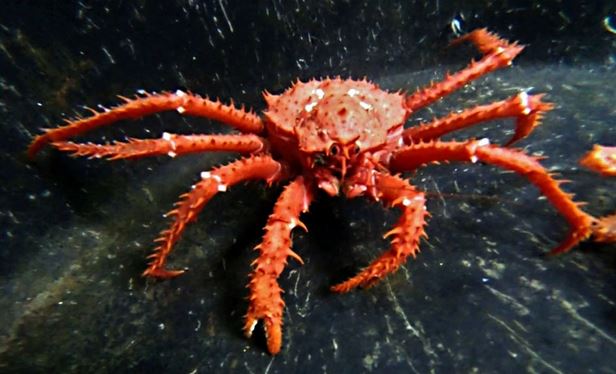-
Tips for becoming a good boxer - November 6, 2020
-
7 expert tips for making your hens night a memorable one - November 6, 2020
-
5 reasons to host your Christmas party on a cruise boat - November 6, 2020
-
What to do when you’re charged with a crime - November 6, 2020
-
Should you get one or multiple dogs? Here’s all you need to know - November 3, 2020
-
A Guide: How to Build Your Very Own Magic Mirror - February 14, 2019
-
Our Top Inspirational Baseball Stars - November 24, 2018
-
Five Tech Tools That Will Help You Turn Your Blog into a Business - November 24, 2018
-
How to Indulge on Vacation without Expanding Your Waist - November 9, 2018
-
5 Strategies for Businesses to Appeal to Today’s Increasingly Mobile-Crazed Customers - November 9, 2018
King Crabs Could Wipe Out Rare Underwater Invertebrates, Thanks To Global Warming
In a 2010-2011 survey, the researchers found 468 individuals of the king crab species Paralomis birsteini occupying the continental slope off Marguerite Bay. The Antarctic coastline has a unique ecosystem that has been in place for tens of millions of years.
Advertisement
For once, large populations are not good news, because the king crabs might soon conquer Antarctica which could potentially cause dramatic disruption on the continental shelf. Animals like starfishes, giant ribbon worms and sea spiders, used to be the top predators in the community are now threatened by the presence of the shell-crushing predator. The study said rising ocean temperatures are responsible for the crabs’ migration to the continent.
Aronson adds that it is still hard to determine how fast the king crab population is moving where scientists only recorded king crabs on the Antarctic continental shelf beginning in 2003.
While extremely cold temperatures have created a defense barrier for these creatures, the water is now warming up on and by the shelf.
The new study by Aronson and his colleagues was funded in part by the National Science Foundation and was published yesterday (Sept. 28) in the journal the Proceedings of the National Academy of Sciences.
The introduction of king crabs to the Antarctic coast could also lead to an uptick in crab-eating predators in the area, Aronson noted.
And this means that crabs would be able to migrate outside their natural habitat and that would, of course, have a major impact on the local ecosystem since king crabs feed on the kinds of soft organisms commonly found along the Antarctic shelf.
Observations suggest a reproductively viable population is present, as juveniles, discarded molts and precopulatory behavior were seen. Water is cold in the region, but still favorable for the crabs.
“The only way to test the hypothesis that the crabs are expanding their depth-range is to track their movements through long-term monitoring”, said James McClintock of the University of Alabama at Birmingham (UAB), another author of the study. These changes would fundamentally alter the Antarctic sea-floor ecosystem and diminish the diversity of marine ecosystems globally.
Advertisement
As the waters warm due to climate change, they are inching closer to the continental shelf, which could create all sorts of problems for the ecosystem in existence there now.




























